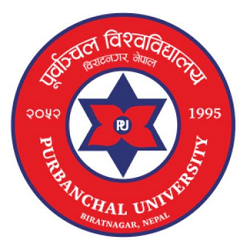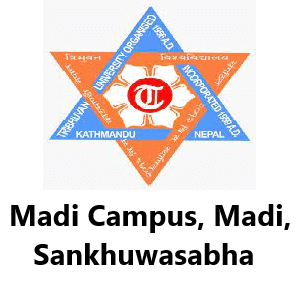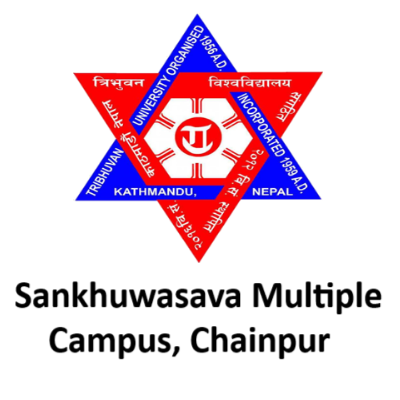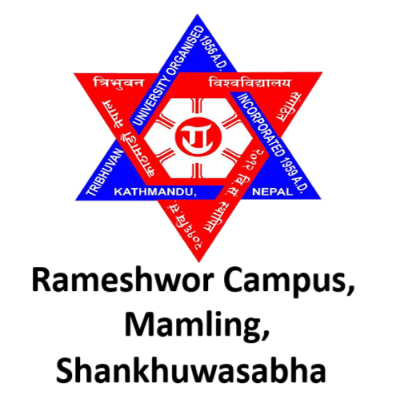Overview

Its name, "Barun," is derived from the sacred Barun River, which originates from Mt. Makalu (8,463 m), reflecting the cultural and natural identity of the region.
The campus was established with the vision of providing affordable, accessible, and quality education to the people of Sankhuwasabha, northeast Bhojpur, and surrounding areas.
Today, it runs higher secondary (+2), undergraduate, and postgraduate programs in education, management, humanities, and social sciences. With its non-profit community model, BMC has served as a foundation for social and academic growth in one of Nepal’s remote districts.
Quick Highlights
-
Founded: 1986 (2043 B.S.)
-
Affiliation: Tribhuvan University (TU) and National Examination Board (NEB)
-
Type: Non-profit community campus
-
Location: Khandbari-8, Sankhuwasabha, Koshi Province, Nepal
-
Academic Levels: Ten Plus Two (+2), Bachelor’s, and Master’s
-
Annual Graduate Output: Around 75 graduates per year
-
Specialization: Education, Management, Humanities, and Social Sciences
-
Mission: To produce skilled, ethical, and socially responsible graduates through inclusive, affordable education
-
Unique Setting: A peaceful educational environment with views of Mt. Makalu, Arun Valley, and surrounding forests preserved by the Community Forest Users’ Group
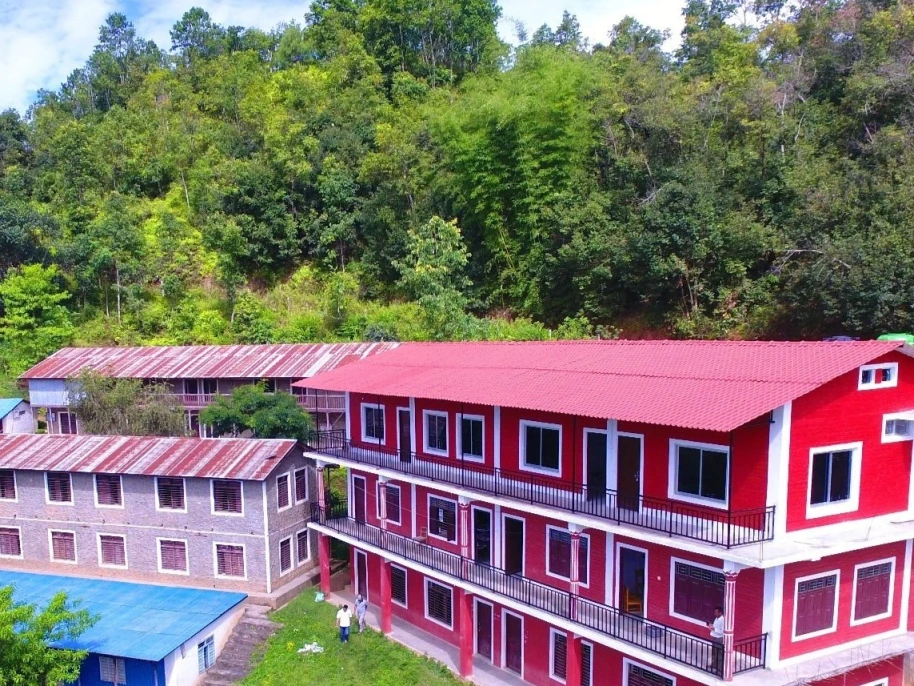
Academic Programs Offered
Barun Multiple Campus provides a wide range of programs through NEB and TU affiliations, catering to diverse student interests and career paths.
Ten Plus Two (+2) Programs (NEB Affiliation)
-
Management Group
-
Education Group
-
Humanities Group
These programs are two-year annual courses designed to prepare students for higher education or vocational careers. Eligibility requires successful completion of SEE/SLC or an equivalent qualification.
Undergraduate Programs (Tribhuvan University Affiliation)
Bachelor of Arts (BA)
-
Majors: Nepali, English, Mathematics, History, Political Science, Sociology, Economics
Bachelor of Education (B.Ed.)
-
Specializations: English, Nepali, Economics, Health and Physical Education
-
Minor Subject: Population Studies
Bachelor of Business Studies (BBS)
-
Concentrations: Management, Marketing, Accounting, Finance
These four-year annual programs are open to students who have completed Class 12 or equivalent.
Postgraduate Program (Tribhuvan University Affiliation)
Master of Education (M.Ed.)
-
Specializations: English, Nepali, Health Education, Education Planning and Management (EPM)
-
Duration: Two years, semester-based system
-
Admission: Bachelor of Education (B.Ed.) with relevant specialization
BMC also offers a one-year Bachelor of Education program for graduates from other fields who wish to pursue teaching as a profession.
Admission Process
The admission process at Barun Multiple Campus is transparent, inclusive, and aligned with the guidelines of NEB and TU. Key requirements include:
-
+2 Admission: Students must pass SEE/SLC or an equivalent examination.
-
Bachelor’s Admission: Completion of Class 12 or equivalent in any recognized stream.
-
Master’s Admission: Completion of a B.Ed. or equivalent degree with specialization in relevant subjects.
Students are required to submit transcripts, migration certificates, recent photographs, and prescribed fees. Admission dates vary by level, generally following the academic calendar of NEB and TU.
Attendance is mandatory, with a minimum requirement of 80% for eligibility in final examinations.
Teaching Faculty and Learning Methodology
Barun Multiple Campus has a team of experienced faculty members with strong academic and research backgrounds. Many hold postgraduate and doctoral qualifications, ensuring academic depth and practical knowledge in their teaching.
The methodology combines lectures, group discussions, presentations, fieldwork, and community engagement, preparing students for professional roles in education, business, and public service.
Faculty members also guide students in research projects, seminars, and skill-building workshops, aligning classroom learning with real-world applications.
Infrastructure and Learning Facilities
The campus is situated in a serene natural setting, providing an environment conducive to focused study. Key facilities include:
-
Well-furnished classrooms equipped with teaching aids
-
A modern library with textbooks, reference materials, journals, and e-library access
-
Boys’ hostel with adequate residential facilities
-
Technology-supported classrooms
-
Basic medical services for primary healthcare
-
Indoor and outdoor sports facilities
-
Canteen services for affordable meals
-
Non-credit courses in ICT, climate change, and preparation for Public Service Commission and Teacher Service Commission examinations
-
Research funds and support for student-led projects
The infrastructure reflects the institution’s commitment to offering a supportive academic atmosphere for students from diverse backgrounds.
Student Life and Campus Experience
Barun Multiple Campus emphasizes inclusivity, diversity, and community. Students from various districts, ethnic backgrounds, and socio-economic groups come together, creating a vibrant academic culture. The campus is especially recognized for encouraging female students and learners from disadvantaged communities.
Daily life at BMC combines academic learning with social interaction, cultural exchanges, and participation in community development programs. Its location, overlooking the Makalu range and Arun Valley, provides a unique learning experience in harmony with nature.
Extracurricular Activities (ECA)
Beyond academics, BMC supports extracurricular engagement for the holistic development of students. Activities include:
-
Sports tournaments (football, volleyball, badminton, athletics)
-
Cultural programs celebrating local traditions and national events
-
Student research and exhibitions (e.g., Barun Handicraft Exhibition)
-
Debate competitions and literary programs
-
Volunteering and community service projects
These activities build confidence, leadership, and social responsibility among students.
Scholarships and Financial Support
The campus provides financial support to encourage access for disadvantaged groups. Scholarships are awarded based on academic performance, economic need, and inclusion criteria. Key provisions include:
-
Full tuition fee exemption for students scoring a GPA above 3.5
-
Partial tuition discounts for students with strong academic records
-
Discounts for siblings studying together
-
Special scholarships for Dalit, economically marginalized, disabled, talented, and educationally disadvantaged students
These measures ensure that higher education remains accessible to students from all backgrounds.
Achievements and Institutional Milestones
Over nearly four decades, Barun Multiple Campus has made significant contributions:
-
Produced graduates working in schools, government offices, businesses, NGOs, and community organizations across Nepal
-
Recognized by the University Grants Commission for its contributions to higher education in rural regions
-
Expanded programs from initial intermediate courses to bachelor’s and master’s levels
-
Integrated ICT-based learning and established research initiatives for students
-
Active participation in quality assurance programs under TU and UGC guidelines
Its role in producing educators, administrators, and professionals has had a lasting impact on the educational and socio-economic development of Sankhuwasabha and beyond.
Why Choose This Institution?
Barun Multiple Campus is a reliable choice for students seeking affordable and accessible higher education in eastern Nepal. Its strengths include:
-
Community-driven, non-profit model ensuring accountability and transparency
-
Wide range of academic programs from +2 to Master’s level
-
Experienced teaching faculty with academic and research expertise
-
Strong focus on inclusion and diversity, encouraging participation from women and marginalized groups
-
Scholarships and financial aid for deserving students
-
Serene learning environment with a unique geographic setting
-
Support for student research, extracurricular activities, and skill-based training
The campus remains an institution where students receive education rooted in community values, academic quality, and social responsibility.
Conclusion
Barun Multiple Campus, Khandbari, stands as a model of community-driven higher education in Nepal. Established through collective local effort in 1986, it has steadily grown into an academic institution offering secondary, undergraduate, and postgraduate programs. With its affiliation to Tribhuvan University and NEB, commitment to affordable education, and emphasis on inclusivity, BMC continues to serve as a cornerstone of learning in the region.
Contact Barun Multiple Campus's administrative office for detailed information on the course, admissions, location, fees, scholarships, facilities, counseling, or eligibility.
Contact Details
Khandbari Municipality - 11, Khandbari, Sankhuwasabha, Nepal
Phone: +977-29-560195, +977-29-560695, +977-9762219333
Website: www.baruncampus.edu.np
Email: barun.campus95@gmail.com



